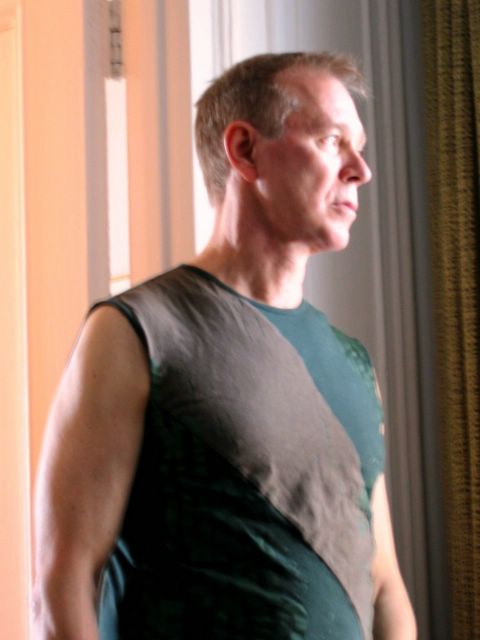Retreat into Irony: Death of Baudrillard II
Like most French intellectuals of his time, Baudrillard turned to Marxism for a solution to “the problem” of Capitalism: Wrest control of production from the Capitalist Plutocracy and put it in the hands of “the people.” But this solution was never adequately thought out. Most lacking was a vision of the “content” of life--a content liberated from the mastering classes. If we stop marching to the drumbeats of “produce and consume,” then what will inform the rhythm of our lives? What startling new purposes will fulfill us? Marxism didn’t answer that, and Baudrillard--in a late-life wake-up call--glimpsed the problem: Marxism was not really a revolutionary movement at all: It was part and parcel of Capitalism itself, as he argued in The Mirror of Production (1973). Capitalism actually needed Marxism to validate itself, he claimed. If that’s difficult to wrap your head around, think of how celebrities so often rely on bad publicity to maintain their economic privilege. The more the Marxists railed against America, the stronger the American creed became. One reason for this was that the Marxists wanted the same thing: They wanted Things. They just wanted to trade in the old Board of Directors for a new one: the Central Planning Committee. Government bureaucrats would replace Corporate plutocrats in the critical task of filling the social pantry, closet, and garage with Things. Looking back, this was hardly as revolutionary as it seemed. “See the new boss? Same as the old boss.”
In the end, “Democratic Capitalism” (woefully misnamed) won out over “State Capitalism,” since it was far more efficient at producing and consuming things. Now we are so enslaved by our things that we don’t have a clue what marvels of human fulfillment might lie within our reach--if only we had the courage to curb our material addictions, and the vision to see a better way of life. Despite everything, awareness of the problem of Materialism is alive and well, and growing. So far, however, it’s a rather impotent kind of awareness--lacking both political and revolutionary zeal. Choirs of the likeminded sing their blues, and then go dutifully back to their cubicles, where the only defense against dehumanization is: IRONY! But wait. There is one lone ray of radical hope on the horizon, and lo and behold, it encompasses much that Baudrillard feared the most. It’s a Virtual World, and it’s called The Internet.
In the end, “Democratic Capitalism” (woefully misnamed) won out over “State Capitalism,” since it was far more efficient at producing and consuming things. Now we are so enslaved by our things that we don’t have a clue what marvels of human fulfillment might lie within our reach--if only we had the courage to curb our material addictions, and the vision to see a better way of life. Despite everything, awareness of the problem of Materialism is alive and well, and growing. So far, however, it’s a rather impotent kind of awareness--lacking both political and revolutionary zeal. Choirs of the likeminded sing their blues, and then go dutifully back to their cubicles, where the only defense against dehumanization is: IRONY! But wait. There is one lone ray of radical hope on the horizon, and lo and behold, it encompasses much that Baudrillard feared the most. It’s a Virtual World, and it’s called The Internet.


0 Comments:
Post a Comment
<< Home